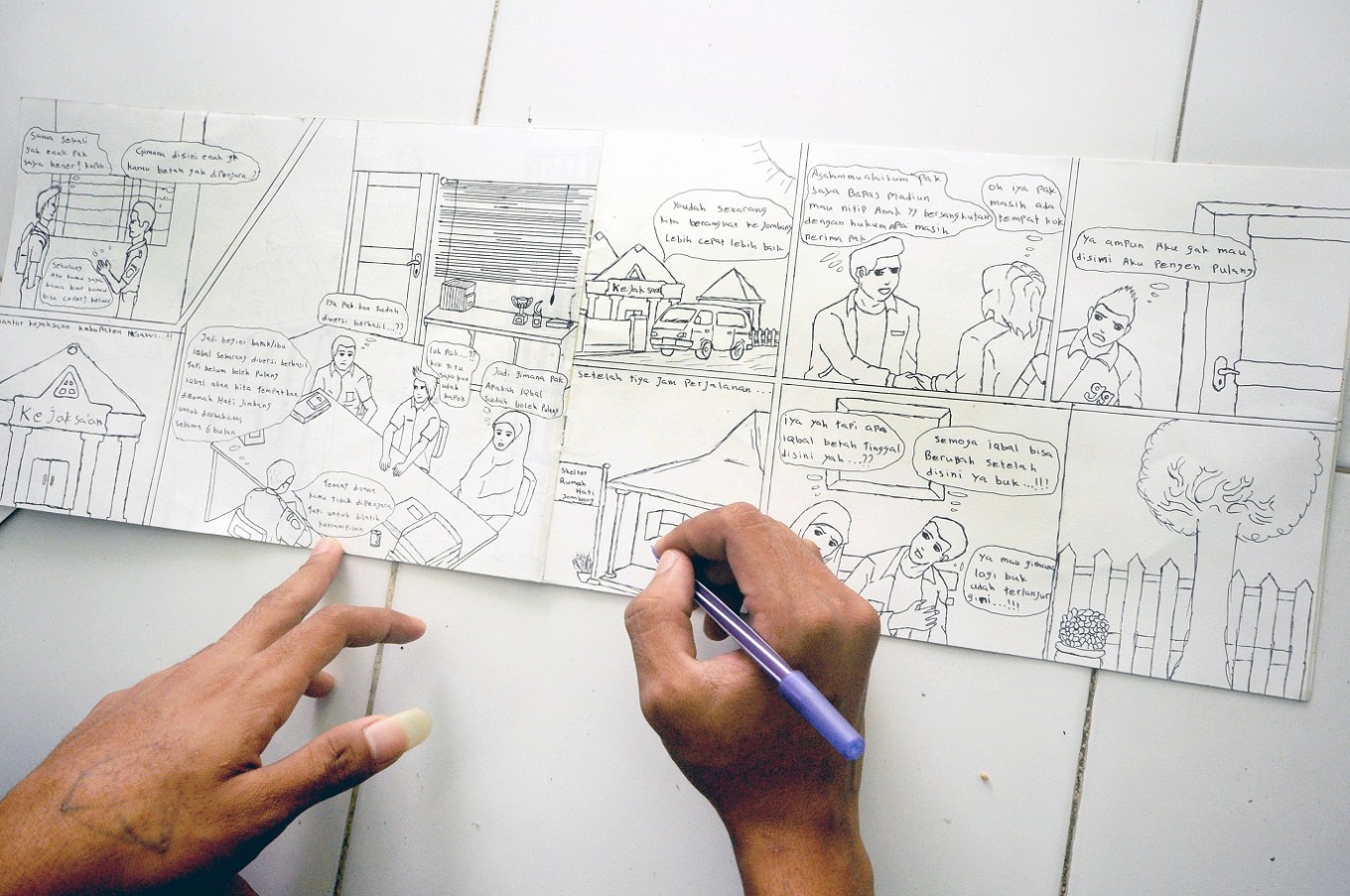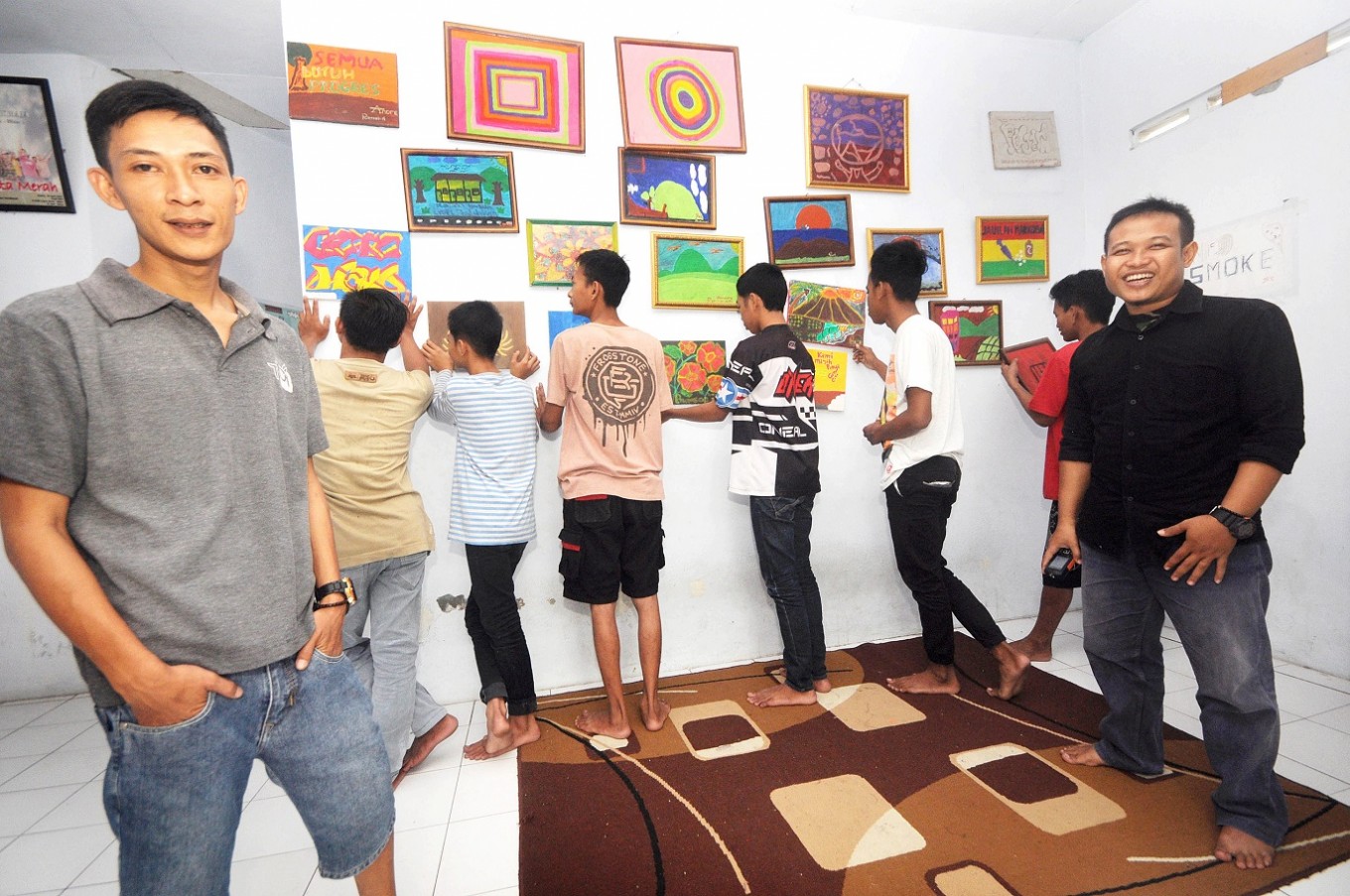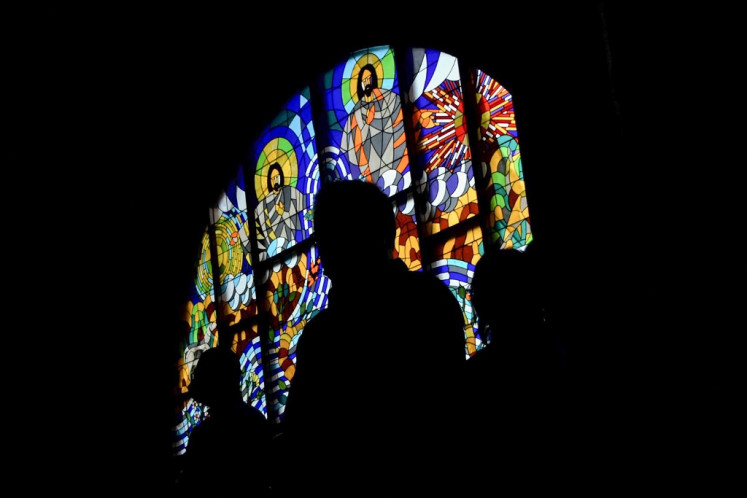Popular Reads
Top Results
Can't find what you're looking for?
View all search resultsPopular Reads
Top Results
Can't find what you're looking for?
View all search resultsRumah Hati: A second chance for youngsters
Starting a new chapter in life requires courage and community support.
Change text size
Gift Premium Articles
to Anyone
F
ormer young inmates can face a number of difficulties such as prejudice when they return to their families and friends after serving time in a juvenile penitentiary. This situation prompted a number of psychologists to set up a shelter called Rumah Hati (House of the Heart) in Jombang, East Java.
Yusti Probowati, a co-founder of the house, said people should realize that convicted minors were also victims. The Indonesian forensic psychology professor felt concerned when she inspected the juvenile penitentiary in Blitar, East Java.
“I found no psychological guidance, while underage crimes involve psychological aspects,” she said recently.
Yusti said the lack of control among these youngsters had mostly been caused by family disharmony and their association with unruly groups. She regularly traveled from Surabaya to Blitar between 2003 and 2010 to provide psychological counseling for the teen inmates.
Read also: Inmates celebrate second chance on international Women's Day
“Psychological support is very important, otherwise they could later become adult criminals,” the dean of Surabaya University’s School of Psychology said.
With initial funding from a German NGO, Yusti finally opened Rumah Hati in 2011, the only shelter guiding teenagers in East Java, and since 2013 the shelter has been self-funding.
Members of Rumah Hati are tightly selected males aged 14-18, formerly implicated in crimes such as theft and indecency. Because of financial reasons, the members are kept to a small number with each batch comprising five to six youngsters.
“Our limited personnel, funding and accommodation prevent us from receiving a lot more cases,” Yusti said.
The teens stay for six months under the guidance and supervision of social activists Faisol Hidayat and Irman Abdurachman in a modest leased house on Jl. Empu Gandring in Jombang.
“They are also regularly visited by two psychologists according to their needs,” she said.
Members start their days by applying discipline in doing regular activities such as waking up early, taking a bath, performing daily prayers and doing chores such as cooking. After that, they learn various skills to prepare them for future employment, ranging from handicraft making, automotive repair, welding and massage techniques to computing. For their formal education arrangements can be made in cooperation with the Jombang Community Study Center.
Aside from creative skills, the young trainees are introduced to theatrical arts, even showcasing their acting skills in a number of performances.
 My story: The personal experience of one teen is manifested through his drawing talent.(JP/Nedi Putra AW)
My story: The personal experience of one teen is manifested through his drawing talent.(JP/Nedi Putra AW)
“We regret that the art program, which was good for therapy, has had to be discontinued,” she said, citing the lack of funding.
According to Yusti, Rumah Hati has so far returned 60 youngsters to society with an 80 percent success rate.
“We always invite our graduates for gatherings in order to motivate their juniors who are still studying at Rumah Hati,” Yusti said, hoping the shelter could be developed in other regions and officially managed by local administrations.
In her view, the Juvenile Rehabilitation Institute (LPKA) should include minors’ psychological aspects in its restoration program.
“We’re ready to support the government with the modules developed in Rumah Hati,” she said.
The Juvenile Court Law stipulates restorative justice for the settlement of criminal cases by involving perpetrators, victims, their families and other relevant parties to strive for fair solutions by emphasizing rehabilitation.
 Brotherhood: Irman Abdurachman (left) and Faisol Hidayat provide guidance for former young offenders at Rumah Hati shelter in Jombang, East Java. The teenagers are encouraged to express their feelings through drawings.(JP/Nedi Putra AW)
Brotherhood: Irman Abdurachman (left) and Faisol Hidayat provide guidance for former young offenders at Rumah Hati shelter in Jombang, East Java. The teenagers are encouraged to express their feelings through drawings.(JP/Nedi Putra AW)
Despite the existing regulation, many teenagers do not receive a proper psychological approach in their rehabilitation efforts. Faisol said most teen inmates were prone to repeating their offenses after their release because they lose self-confidence.
Faisol, an alumnus of Darul Ulum University in Jombang, said at Rumah Hati, discipline is imposed by a system of reward and punishment in order to be effective. Rewards include having the freedom to choose the food they want for the day. The forms of punishment are not as tough as those that might be imposed in a penitentiary.
Read also: Empowering blind graduates with soft skills
“Negligent members here are punished in a positive way, such as by washing motorcycles,” he said. Mentors observe new members of the shelter during the first and second month to recognize their areas of interest. Members can also further enhance their previous skills. A 16-year-old member of the shelter, for example, makes a comic strip and composes a storyboard every day, chronicling his journey from Ngawi Penitentiary to Rumah Hati. “I want to be a designer,” he said.
All the shelter dwellers are also taught to draw to express their feelings. Some of them depict the atmosphere of their former penitentiary coupled with words such as “Kami masih punya cita-sita” (We still have our dreams). A member who has been with the shelter for six months only wrote “Go to Hell” on his drawing.
“This is to get rid of my past bad habits,” said the ex-Blitar Penitentiary inmate.
Some drawings have been sold at various exhibitions while the rest still decorate the guest room of Rumah Hati as silent witnesses of the youngsters who have built their hopes for a better future.










